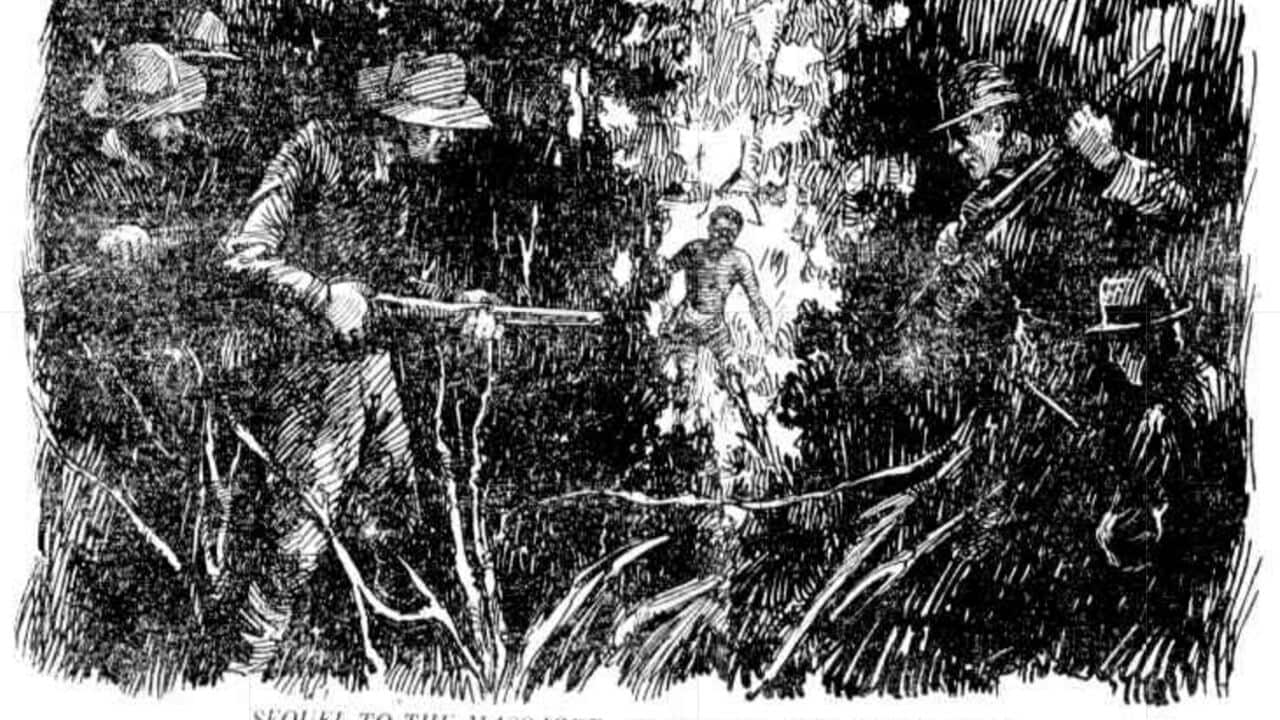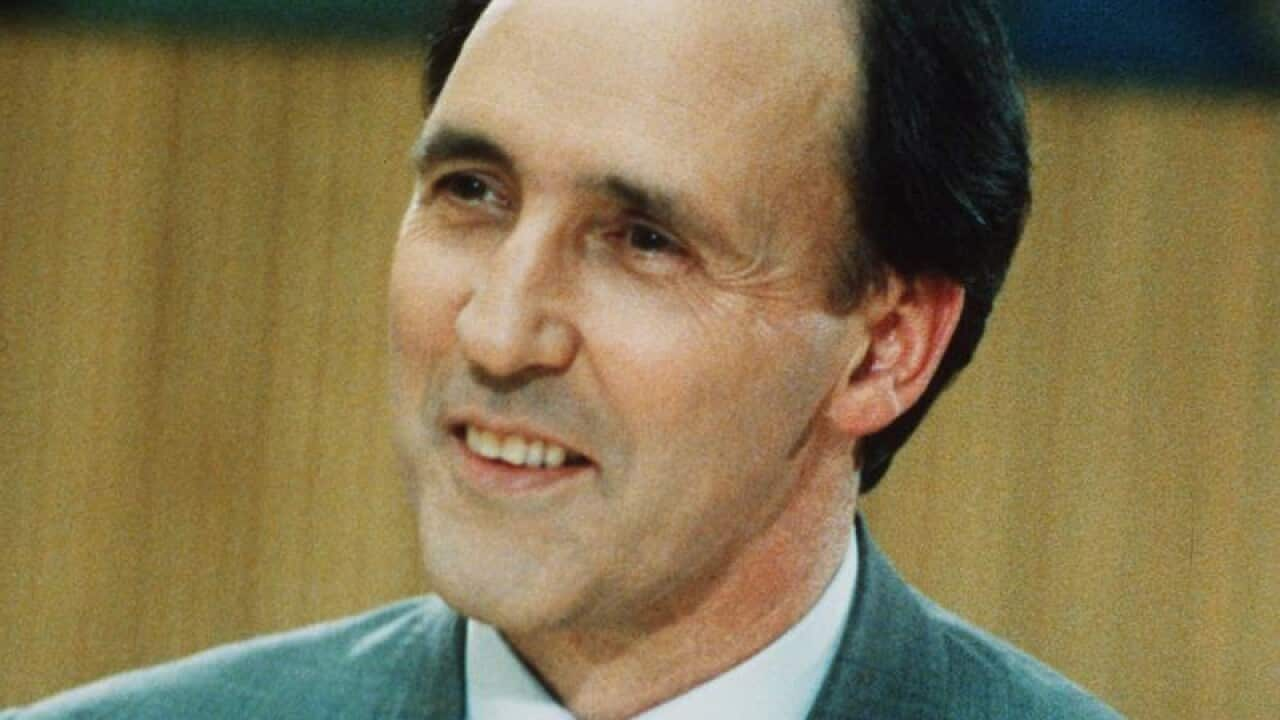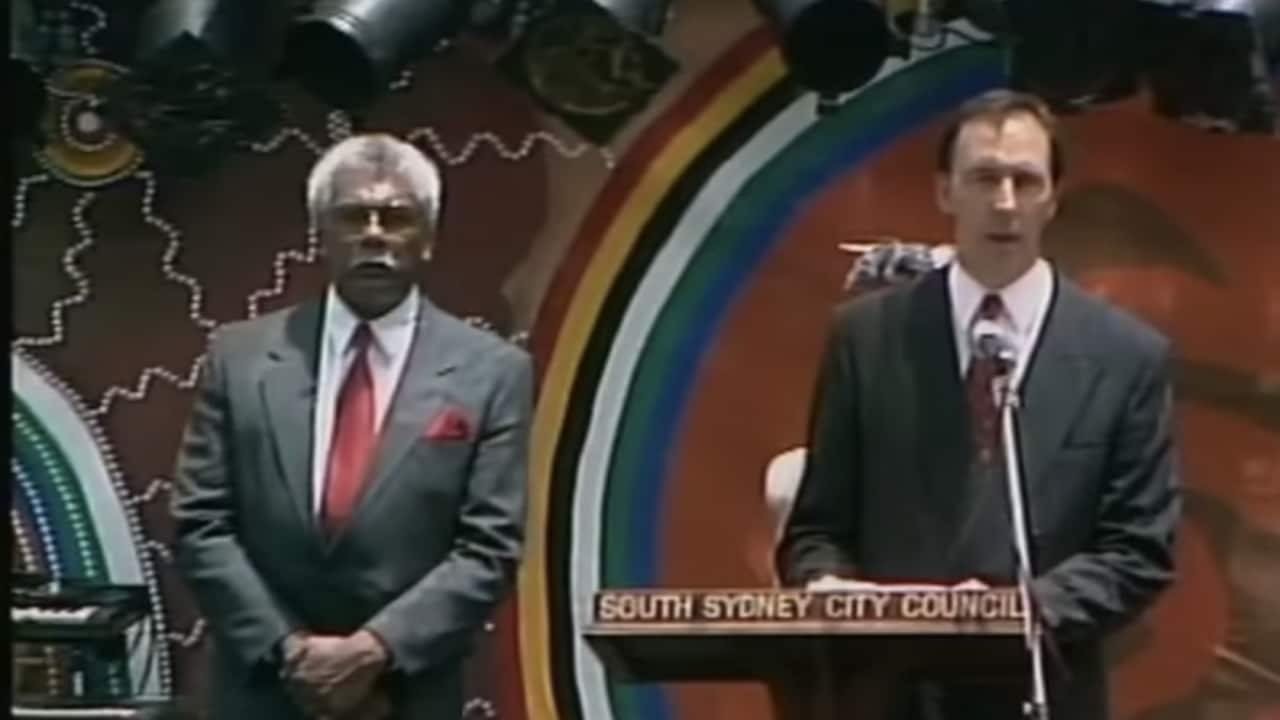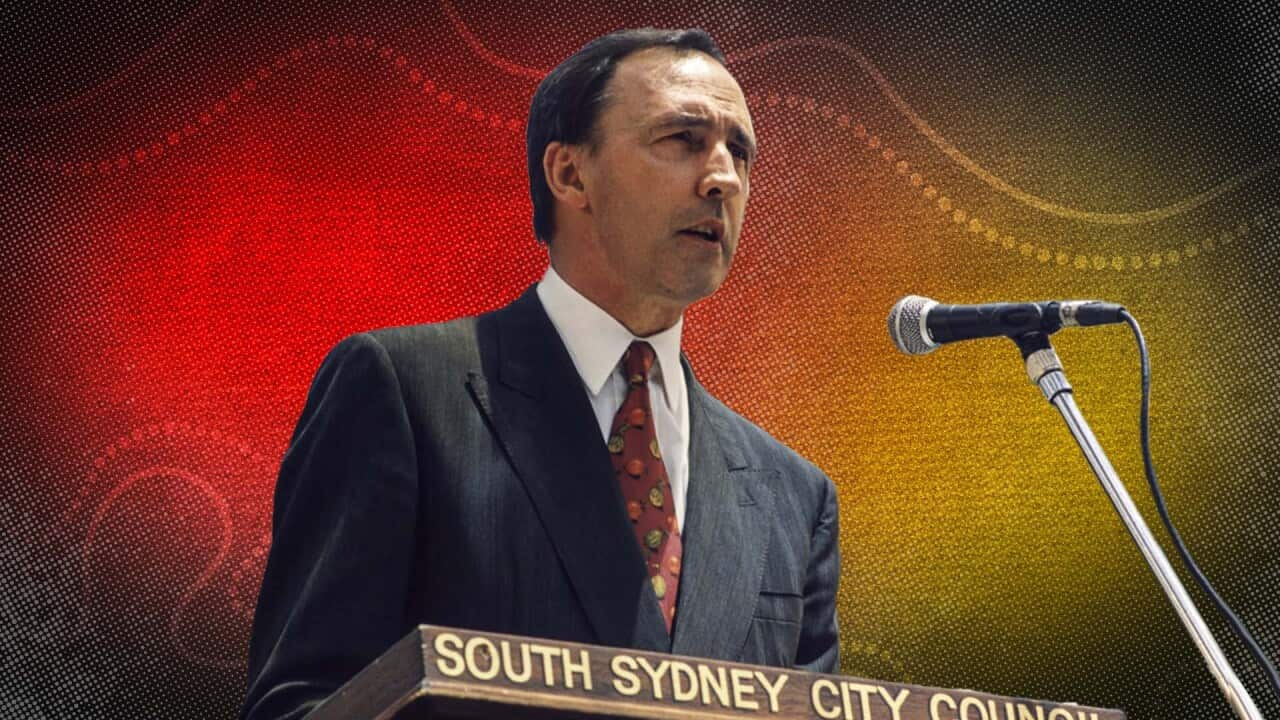Sol Bellear AM (1950-2017) was an uncompromising Bundjalung warrior for Aboriginal rights.
Born in Mullumbimby (NSW) his activism began as a teenager, when he relocated to Redfern not long after the 1967 referendum.
Over the next five decades, Sol dedicated his life to fighting for Aboriginal political and social rights.
He would become the inaugural chair of the Aboriginal Legal Service and the Metropolitan Local Aboriginal Land Council, chair of the community-controlled Aboriginal Medical Service Redfern and a founding member of the Aboriginal Housing Company.
Sol was always front and centre of marches for Land Rights and was involved in the Tent Embassy movement in the 1970s.

Sol Bellear marching for land rights. Credit: Elaine Pelot-Syron
I had known Sol since the mid-1990s, working for him when he was Deputy Chair of the Aboriginal and Torres Strait Islander Commission (ATSIC) – a national policy and service delivery body for First Nations people.
We later worked together for almost a decade at NSWALC in Sydney.
We often chatted of significant moments in Aboriginal affairs.
He would recall the inside story with an invaluable insight from behind the scenes and backroom conversations that led up to many memorable moments or outcomes in Indigenous policy and affairs.

Sol Bellear AM Source: Supplied
It was the first time a Prime Minister spoke publicly about the dispossession and violence Aboriginal and Torres Strait Islander peoples had survived.
Just six months before Keating addressed the gathering, the High Court of Australia had delivered its landmark 1992 judgment in Mabo v Queensland No. 2, which overturned the fictional legal doctrine of terra nullius: that before 1788, the continent of Australia was "land belonging to no-one".
As ATSIC deputy chair, Sol gave a speech and then introduced Prime Minister Keating. (He also had seen an advance copy of the PM’s speech).
Many believe that Keating’s 16-minute address that day is one of the most significant speeches ever made to First Nations people in Australia.
“Initially, I was ready to walk off the stage,” Sol told me.
“I was standing next to Stan Grant (who was the MC) and for the first couple of paragraphs I was thinking that 'here is just another prime minister speaking at a launch of an Indigenous event,'” he once said.
Sol remembered how he could see across Redfern Park that people were not really tuned in, there were even a few hecklers, and many people were engaged in other conversations.
Then a hush swept across the crowd.
“It was when Keating got to that part of his speech: It begins, I think, with that act of recognition – that the murmurs ceased,” Sol once said.
He remembered that from that moment, each line Keating delivered got a cheer.
Then more.
Then applause, then even more cheers.
“Recognition that it was we who did the dispossessing,” Keating declared.
“We took the traditional lands and smashed the traditional way of life.
“We brought the diseases. The alcohol.”
I now remember how Sol emotionally smiled as he recalled how with each line – more mob cheered.
“We committed the murders,” Keating stated.
“We took the children from their mothers. We practised discrimination and exclusion.
“It was our ignorance and our prejudice.
“And our failure to imagine these things being done to us.”
Sadly, Sol passed away in November 2017. He was just 66.
Prior to his passing, every time we caught up, we still talked about Keating’s speech with both of us debating on whether a sitting Australian Prime Minister could or would say those same words today.
He would lament as he knew the answer.
In fact, he often had choice words for the lack of progress in Aboriginal affairs, especially for prime ministers who he believed had weaponised Indigenous policy for political gain.
Sol often reflected on the events of December 10, 1992, his front row seat to history and a day he repeatedly said was ‘just something unbelievable'.
“Keating’s speech was the most significant speech, prime minister or not, ever made to Aboriginal people in Australia, and not just to Aboriginal people, but to all of Australia,” Sol said in back in 2017.
Paul Keating ended his speech with optimism for the future.
Stream free On Demand

Land Wars
program • community • 2022
PG
program • community • 2022
PG
“There is one thing today we cannot imagine," he said.
“We cannot imagine that the descendants of people whose genius and resilience maintained a culture here through 50,000 years or more, through cataclysmic changes to the climate and environment, and who then survived two centuries of dispossession and abuse, will be denied their place in the modern Australian nation.
“We cannot imagine that. We cannot imagine that we will fail.
“And with the spirit that is here today I am confident that we won't.
“I am confident that we will succeed in this decade.”
Keating concluded to rapturous applause.
Keating's Labor lost the next federal election on March 13, 1993, and John Howard became prime minister.








